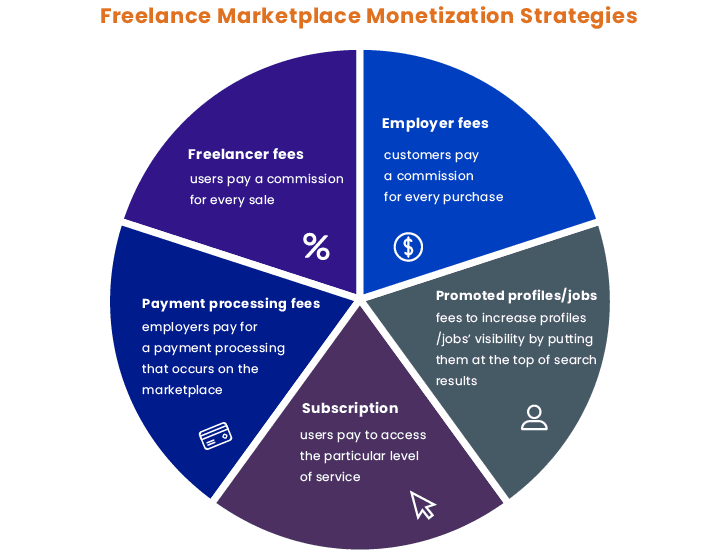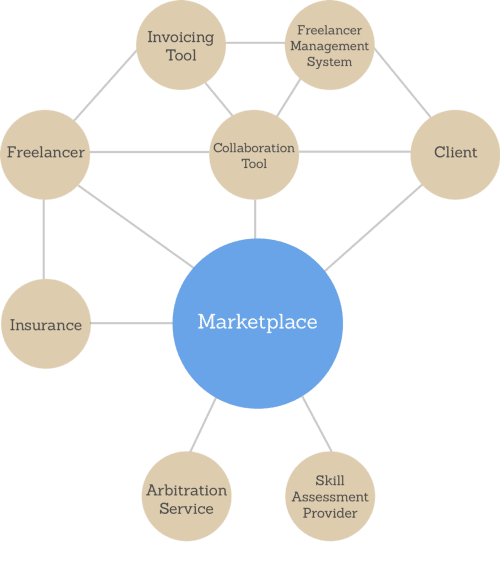How Freelance Software Can Help You Adapt to the Changing Freelance Marketplace
It is the year 2020, and it is highly unlikely that you have not heard of the term freelance economy. If you do not know what it is, here is a short explanation. The freelance economy is also known as the gig market. It is a labor market in which the number of short-term contracts is growing at a rapid rate. In this market, various companies hire self-employed workers to undertake jobs that require a particular skill, in return for a predetermined payment. Rather than being offered permanent positions, freelancers are hired for temporary work. Therefore, the freelance marketplace is an excellent platform for companies, entrepreneurs, and talented individual contractors. An online freelance marketplace makes money by charging both the freelancer and the employer in return for acting as the platform that facilitates the transaction between the two.

The freelance economy is booming and makes up over 35% of the US workforce (CNBC). By the year 2027, the number is projected to reach 50.9% (We Forum). Online freelance marketplaces such as Upwork, Toptal, Fiverr, 99designs, and Freelancer are some of the industry’s key players that have reshaped the freelance economy. To build your own freelance software, you must first find a niche market for your product. A niche market is the subset of the market that is characterized by specific needs, interests, and requirements. This will help your organization reduce the competition it faces by clearly targeting and focusing all your marketing efforts on a small but well-defined audience. By establishing a niche market, your freelancing software will serve population groups that other freelance software have previously overlooked. This is the best way to validate your business idea because you are the only one who addresses your customer’s requests. Therefore, you will be the one gaining all the profits.
How to Build Your Own Freelancing Software?
If you want to build a thriving freelance marketplace like Upwork or Fiverr, you will need a coordinated team of experts to help you achieve your goal. Here are some vital aspects of your freelance software that you must focus on:
- App Architecture – Your software architecture deals with the back end of your app, which is a crucial part of the development process. It will determine how your app works, how its components will interact with each other, and, most importantly, how it will bring value to the users.
- User Interface – In order to have a fantastic design that your users will love, you will have to perform some market research. An interactive and intuitive user interface is critical to allow your users to meet their needs effectively.
- API Integration – Hire an engineer with API development and integration experience to integrate payment gateways and other external tools to your freelance marketplace.
- Database Development – As a freelance marketplace, you must store the data of all your existing and future users in a safe and well-organized manner. It is also imperative that you immediately respond to any query that your users might have. For this task, hire software engineers who are proficient in SQL, MongoDB, PostgreSQL.
- Quality Control – High quality is the most crucial attribute that your app needs to demonstrate. You can use manual or automated testing methods to ensure that your app works just as you intended it to.
- Deployment – Once you have ensured that your freelance software works perfectly, your developers will deploy it and make it accessible to the web environment.
- Website Administration – Even after your website is on the internet; your job is not over. In fact, your job is never over. To drive your platform forward, you must continually improve your freelancing software with incremental upgrades.
As the number of freelance workers in the world are on the rise, if you employ the right monetization strategy, your business will be able to generate enormous revenue. The freelance economy has given rise to a multitude of new opportunities for millions of individuals. Freelancers have flexible work hours and can work from home. Additionally, they can also deduct business expenses from their net income, which reduces their taxable income and increases savings. However, there are some disadvantages to the freelance economy as well. Freelance workers do not receive company health insurance, vacation benefits, or sick leave. But the benefits of the freelance marketplace far outweigh the drawbacks. Therefore, more people are working freelance. Freelancing is the future, and the sooner you will jump onto the bandwagon, the more benefits you will reap. If your freelance software can solve the platform’s existing issues and cater to the user’s needs in a better way, it will undoubtedly help you stand out from the crowd.


 Source
Source








